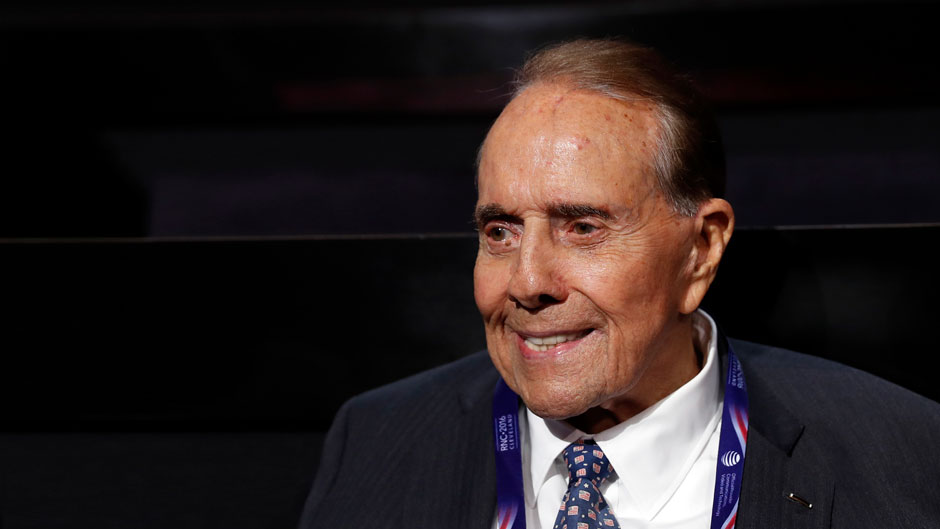It was officially called the President’s Commission on Care for America’s Returning Wounded Warriors. But just about everyone, even politicians in the highest circles of government, simply called it the Dole-Shalala Commission.
In early March 2007, President George W. Bush, responding to a series of newspaper stories in The Washington Post that documented poor conditions faced by some veterans at Walter Reed Army Medical Center, authorized the creation of a special panel to review and make recommendations on the care of servicemen and women from the time they left the battlefield through their return to civilian life.
He appointed former Sen. Bob Dole, who was seriously wounded in World War II, and then-University of Miami President Donna E. Shalala to co-chair the commission. And the two immediately hit the ground running, touring the Miami Veterans Affairs Medical Center only days after their appointments to meet and talk to several veterans wounded in Afghanistan and Iraq.
On Monday, a day after Dole passed away at the age of 98, Shalala recalled what it was like to work with the longtime Senate leader and 1996 GOP presidential nominee.
“He was funny, smart, and kind,” said Shalala, now a professor emerita of political science and health policy at the University. “He cared deeply about our wounded veterans—actually, all who served. I loved working with him.”
Shalala, who served as U.S. Secretary of Health and Human Services in the Clinton administration, said the recommendations she and Dole made while co-chairing the commission were instrumental in helping to change “policies to help disabled veterans and their families.”
Among those recommendations: create comprehensive recovery plans to provide the right care at the right time and in the right place; aggressively prevent and treat posttraumatic stress disorder and traumatic brain injury; and significantly strengthen support for families and rapidly transfer patient information between the Department of Defense and U.S. Department of Veterans Affairs.
Others in the University of Miami community also reflected on Dole’s passing. Noting that Dole championed the rights of people with disabilities, Jessie Howell, an attorney and director of accessibility at the School of Law, said, “We are ever grateful for Bob Dole’s service to our country, both in World War II and through his inspired leadership in support of the Americans with Disabilities Act.”
Howell added that in her role as director of accessibility, she sees many law students with “varying abilities who now can study at Miami Law and enter the profession to fight for equal rights and justice. Bob Dole’s legacy lives on in each of these students.”
The Republican senator lost the use of his right hand after suffering a grievous injury in World War II, and whenever he was in public, he always carried a pen in that hand to discourage people from trying to shake hands with him.
His work in fighting for the rights of the disabled should be celebrated, said third-year School of Law student Kristina M. Thoren, president of the Disabled Law Students Association. “From his own lived experience, he was intimately aware of the issues those living with disabilities—and those engaged in disability advocacy—face in navigating daily life. Him using his national platform as a highly visible, effective, and accomplished leader to place a spotlight on the experience of individuals with disabilities was invaluable,” she said.
Thoren described the Americans with Disabilities Act as “the single most consequential piece disability-centric legislation in the history of the United States,” adding that the act would not have become law without Dole’s advocacy efforts.
“At the time this was debated and signed into law, disability was rarely seen as something to be acknowledged publicly, let alone recognized, advocated on behalf of, and celebrated,” Thoren said. “For Sen. Dole to expend his energy and political capital in support of its passage is something that should not be lost on individuals with disabilities or those advocating on behalf of those with disabilities.”
To Alex R. Piquero, chair of the Department of Sociology and Criminology in the College of Arts and Sciences, Dole will be remembered first and foremost as a person who cared about the American people. “He woke up every day and went to bed every night trying to move the needle. And he did so in a time when one’s political affiliation was secondary to one’s commitment to the entire country,” Piquero said. “If you looked up the term ‘servant leader’ in the encyclopedia, Bob Dole’s name would be listed.”
“A patriot and a true American war hero” is how Lt. Col. Heath Papkov, professor and chair of military science and leadership at Army ROTC in the College of Arts and Sciences, remembers Dole.
“From his time serving in World War II to his position as a senator, he has shown what true service to our country and people means,” Papkov said. “His legacy will be as a champion for our military service members and their families.”

